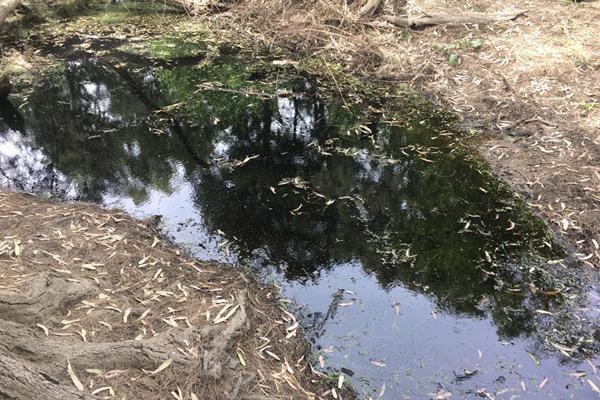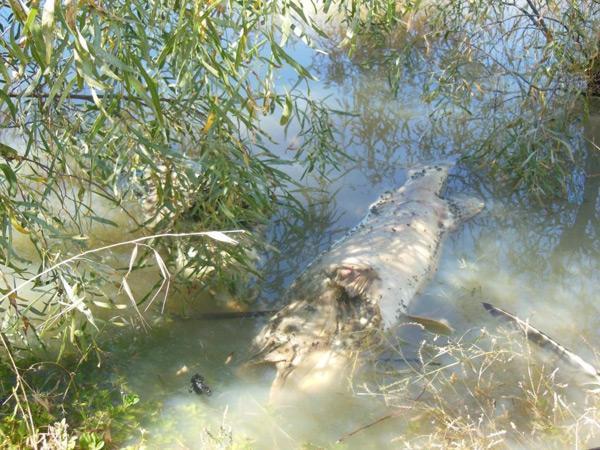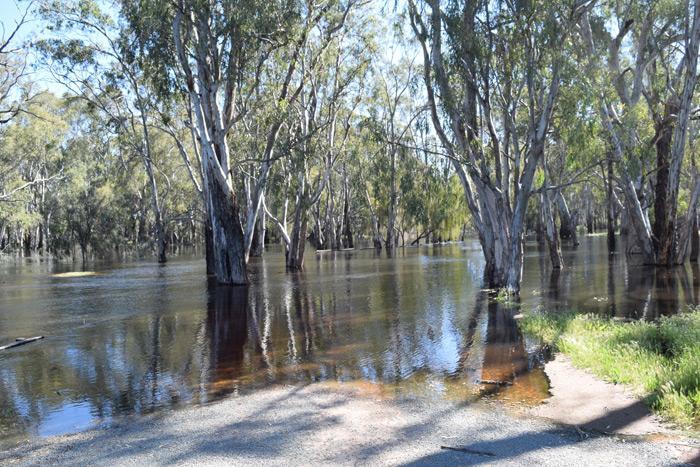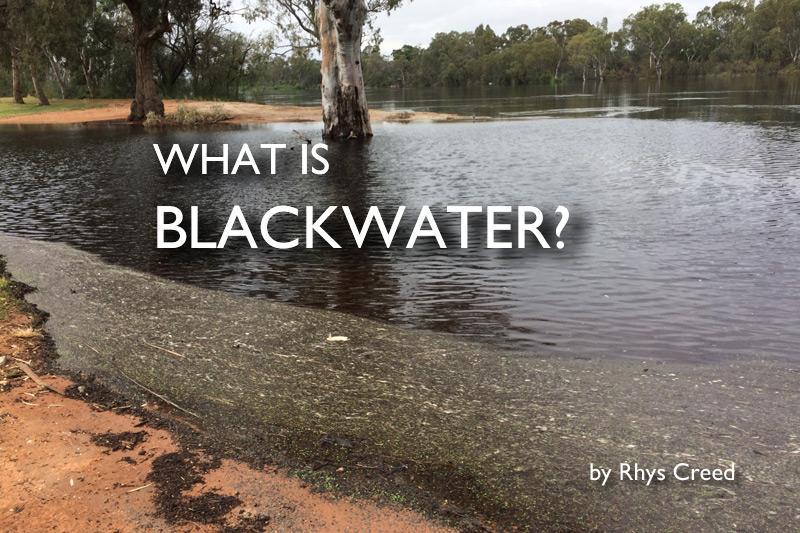Picture above credit: Iain Ellis – Fisheries
Blackwater is water that picks up carbon in the form of plant matter (leaves, grass and bark), animal faeces and other organic matter from a floodplain which dissolves, turning the water a dark brown or black colour. This is like the colour that leaks from a tea bag when you first add the water to a cup. Not all blackwater is bad – these carbon sources are what essentially fuels the river ecosystem – it feeds the bottom of the food web, which supports everything right up to fish. Hypoxic blackwater is very bad, and is when breakdown (decomposition) of large amounts of these carbon sources by microbes leads to low or zero dissolved oxygen levels in the water.

This is Blackwater - you can tell by the dark/clear tea like colour and not all Blackwater is lethal to fish.
These microbes (mainly bacteria) break down the carbon and “breathe” the dissolved oxygen in the water, just like fish do. When large levels of organic matter are covered in water these microbes multiply really fast and suck lots of dissolved oxygen from the water.
This leads to extremely low oxygen levels which is also known as ‘hypoxia’. This is what can be deadly to any creature that needs to breathe dissolved oxygen. Even things like crayfish, shrimp and Yabbies which can exit the water for a short time, or move to really shallow areas for more oxygen are vulnerable, as they become exposed to predators, heat and dehydration.

A large dead cod that perished due to Blackwater from the 2016 floods. Credit: photo taken by Andy Wise.
Eventually the microbes rapidly burn off most of the “available carbon” (which is just like the first few dunks of a tea bag in a cup of water), then their numbers decrease back towards normality allowing dissolved oxygen to gradually recover. Take that tea bag, pop it in a new cup of water and the water won’t be quite as dark. So things move back towards an equilibrium, which means it may still look black in colour, but it isn’t necessarily hypoxic. This is when the dissolved carbon can really benefit river food webs, and helps explain why fish stocks usually increase in the years after a flood that doesn’t cause big fish kills.
Blackwater can be caused by flood water, rain run-off or environmental flow which runs over any floodplain (whether natural forest or cleared farm land) picking up these sources of carbon. The more organic matter on the floodplain that gets picked up, the less oxygen available in the flood water.

Flooding on the lower Murrumbidgee River near Balranald that turned into Blackwater. Credit: photo by Adam Smith
In big floods all this accumulated material gets washed back into the rivers and creeks. If there isn’t enough fresh water to dilute the Blackwater then it can cause death.
During summer the oxygen levels in the water are lower (less oxygen remains dissolved in higher temperatures) which means Blackwater events in summer cause more damage than those in winter. Large fish like adult Murray Cod need higher levels of oxygen to survive (similar to larger people) which usually means the bigger fish perish first in a Blackwater event.
Rhys Creed
If you would like to learn more about Blackwater, have a look at the resources below:
http://www.mdba.gov.au/managing-water/water-quality/blackwater
http://www.mdfrc.org.au/publications/factsheets/images/OM307__Blackwater_Whitworth.pdf


0 comments